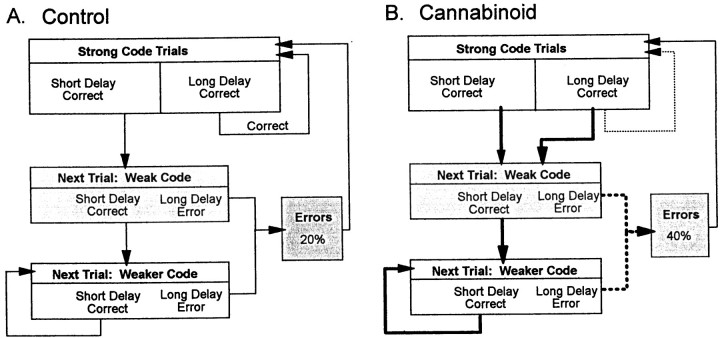Fig. 8.
DNMS behavioral cascade depends on strength of sample phase encoding. A, Control. Cascade starts with strong encoding of SR on long-delay trials. The result will be a correct trial irrespective of delay. If delay is short, the following trial receives a weaker SR code. If a short-delay trial occurs again, the code strength is again reduced on the next trial. Correct performance on short-delay trials successively weakens the SR code, eventually leading to an error attributable to occurrence of an equally likely long-delay trial that incorporates a weak SR code.B, Cannabinoid exposure disrupts the ability to break the cascade influence (bold lines) by eliminating the strong codes after long-delay trials (dashed line). This increases the number of long-delay errors due to weaker codes after all correct trials.

